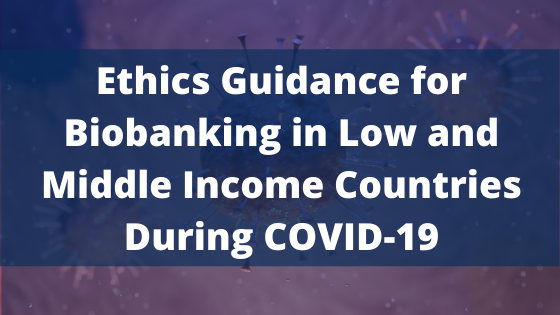Biobanking has the potential to make valuable contributions to health research through the collection, storage, and sharing of human samples and data for research purposes. During the COVID-19 pandemic, storing samples for future research is a public health imperative. There are, however, several ethical concerns. These include the unspecified future use of biosamples and possible risks to participant privacy and interests, obtaining valid informed consent, global sharing of biosamples and data, and (fair) benefit sharing.

Before the pandemic, restrictions on data and sample sharing had become intensified due to the exploitation of low-and middle-income countries (LMICs) by some resource-rich countries. This prompted the development of stringent guidelines to protect samples and data from leaving countries in Africa during previous outbreaks like pandemic influenza, SARS, and Ebola. The COVID-19 pandemic has highlighted the importance of data and sample sharing responsibly within the context of data transfer agreements (DTAs) and material transfer agreements (MTAs). The additional layer of complexity introduced by the pandemic is reflected in forced national lockdowns that limit human movement physical distancing that renders the collection and sharing of biological samples logistically and ethically problematic.
Read this blog post that provides some guidance to researchers, biobankers, research ethics committee members, and other interested persons for ethical practice related to biobanking research in low and middle-income countries during the COVID-19 pandemic.
